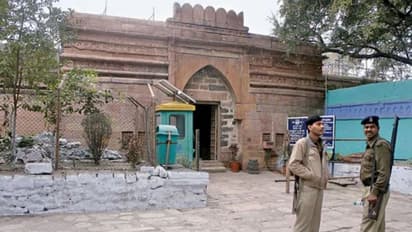Madhya Pradesh: Was Bhojshala in Dhar a Saraswati temple? Here's what former ASI officer KK Muhammed said

Synopsis
According to Muhammed, the historical evidence supports the assertion that the complex was initially a temple dedicated to Saraswati. However, he acknowledged the legal framework established by the Places of Worship Act of 1991, which stipulates that the status of religious sites as of 1947 should be maintained.
Renowned archaeologist KK Muhammed shared some insights in on the contentious dispute surrounding the Bhojshala-Kamal Maula Mosque in the Dhar district of Madhya Pradesh. The former ASI officer asserted that the site, currently a source of conflict between Hindus and Muslims, was originally a Saraswati temple before being converted into an Islamic mosque.
According to Muhammed, the historical evidence supports the assertion that the complex was initially a temple dedicated to Saraswati. However, he acknowledged the legal framework established by the Places of Worship Act of 1991, which stipulates that the status of religious sites as of 1947 should be maintained.
If the site was functioning as a temple in 1947, it should continue to be recognized as such, and likewise for a mosque.
Despite his assertion of the temple's origins, Muhammed stressed the importance of abiding by the decisions of the court and upholding the Places of Worship Act. He urged both Hindus and Muslims to come together, respecting the legal process and working towards an amicable resolution.
Muhammed stressed the need for both communities to refrain from actions that could exacerbate tensions. He emphasized the significance of mutual respect, urging Muslims to understand and honor the sentiments of Hindus regarding revered sites such as Mathura and Kashi.
Highlighting the importance of these sites to Hindus, Muhammed suggested that mosques in such locations could be relocated to alleviate tensions, as they hold lesser religious significance compared to sites like Mecca and Madina for Muslims.
Stay updated with the Breaking News Today and Latest News from across India and around the world. Get real-time updates, in-depth analysis, and comprehensive coverage of India News, World News, Indian Defence News, Kerala News, and Karnataka News. From politics to current affairs, follow every major story as it unfolds. Get real-time updates from IMD on major cities weather forecasts, including Rain alerts, Cyclone warnings, and temperature trends. Download the Asianet News Official App from the Android Play Store and iPhone App Store for accurate and timely news updates anytime, anywhere.